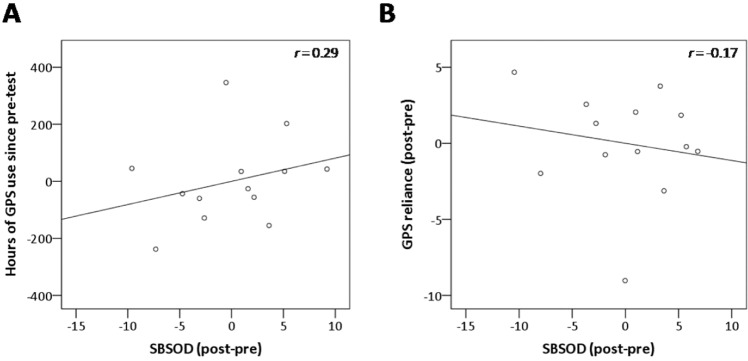Figure 5.
There is no association between a decline in subjective sense of direction and GPS use or reliance since pre-test. Could naturally-occurring spatial memory decline explain greater GPS use since pre-test? If this were to be the case, we would expect a decline in subjective sense of direction to be associated with greater change in GPS use and reliance. There was no significant correlation between change in SBSOD scores and either (A) hours of GPS use since pre-test, r = 0.29, Bootstrap BCa 95% CI [−0.92, 0.98] (covaried with SBSOD at baseline and lifetime GPS experience at baseline); or (B) GPS reliance, r = −0.17, Bootstrap BCa 95% CI [−0.72, 0.58] (covaried with SBSOD at baseline and GPS reliance at baseline). Note that the graphs show plotted residuals from the partial correlations, where covariates were regressed out of the variables of interest. Spatial memory decline was observed without a concurrent decline in subjective sense of direction. Thus, spatial memory decline likely occurred as a result of GPS use, rather than the other way around. SBSOD: Santa Barbara Sense of Direction scale.

